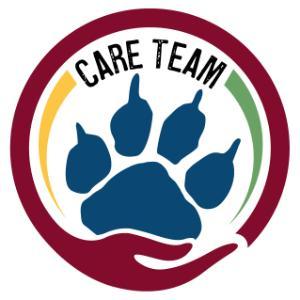Student Health and Wellness offers preventative and supplemental programs and services that are centered around mental, physical and emotional wellness, to promote an atmosphere that creates happy, healthy students.
Florida Tech Care Team
 The CARE Team supports student wellness and campus safety by identifying and assisting students who may be struggling with mental, physical and behavioral health that is impacting their ability to be successful and happy. It serves as an early intervention system and accepts anonymous reports from anyone concerned about a student. The team takes a compassionate, individualized approach while maintaining behavioral expectations and promoting student accountability and development.
The CARE Team supports student wellness and campus safety by identifying and assisting students who may be struggling with mental, physical and behavioral health that is impacting their ability to be successful and happy. It serves as an early intervention system and accepts anonymous reports from anyone concerned about a student. The team takes a compassionate, individualized approach while maintaining behavioral expectations and promoting student accountability and development.
- Racist or otherwise exaggerated (not just expressed once to push buttons) thoughts such as, “Women should be barefoot and pregnant,” “Gays are an abomination to God and should be punished,” “Muslims are all terrorists and should be wiped off the earth.”
- Bullying behavior focused on students, faculty, or staff in the waiting room, outside the office, in the classroom, or in the residence halls.
- Directly communicated threats to staff, faculty or students, such as “I am going to kick your ass” or “If you say that again, I will end you.”
- Prolonged nonverbal, passive-aggressive behavior such as sitting with arms crossed, glaring or staring at staff, and refusing to speak or respond to questions or directives.
- Self-injurious behavior such as cutting or burning, including during a meeting or class, or exposing previously unexposed self-injuries.
- Physical assault such as pushing, shoving, or punching.
- Throwing objects or slamming doors.
- Storming out of the office or room when upset, screaming and yelling about getting revenge.
- Conversations that are designed to upset other students or staff such as descriptions of weapons, killing, or death.
- Psychotic, delusional, or rambling speech.
- Overuse of an office or staff function or time; especially when already instructed not to overuse the staff or office and on appropriate boundaries.
Source: NaBITA.org
- Taking/making calls, texting, using smartphones for social media, etc., while waiting in line in front of you and ignoring their turn or in the classroom.
- Frequent interruption while talking and/or repeated asking of irrelevant, off-topic questions.
- Inappropriate or overly revealing clothing, including extremely sexually provocative clothes, pajamas, or sleepwear.
- Crosstalk or carrying on side conversations while you are trying to speak. Maybe to a friend or on a phone.
- Interruptions in conversation, frequent unnecessary use of the restroom or smoke breaks that have a student up and down in class, etc.
- Poor personal hygiene that makes it difficult to continue a conversation or teach class.
- Lack of focus or paying attention to conversation.
- Excessive sighs or eye rolls or other gestures that disrupt the class environment.
- Misuse of alcohol or other substances. Attending a meeting while under the influence of a substance. Being intoxicated in class.
- Overtly disrespectful talk to staff, faculty, or other students. Interrupting the professor.
- Arguing points of contention or asking for special treatment after staff or faculty ask the student to stop.
- Eating or consuming beverages in meetings or class without permission (or in violation of office norms or class policy).
- Showing up to meetings or class in inappropriate or strange clothing that clearly disrupts the academic environment (tactical military gear, Halloween costumes when it is not Halloween, etc.).
- Reading magazines, newspapers, or books, or studying for other classes/doing other homework during a conversation with you or during class.
Source: NaBITA.org

 Give to Florida Tech
Give to Florida Tech 